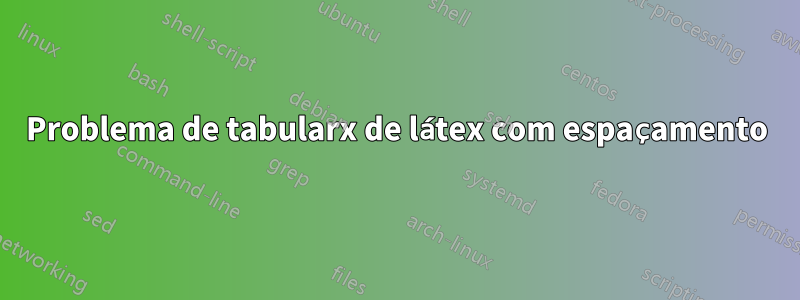
Então, apenas tentando editar uma tabela que alguém fez em tabularx porque gostei do estilo, porém não tenho ideia do que estou fazendo realmente e, como tal, me deparei com um problema. Há um grande espaço após a entrada 'setup', no código abaixo e eu gostaria que tudo fosse bonito e simétrico, o espaço o torna muito assimétrico. Existe uma maneira de remover esse espaço?
\documentclass{article}
\usepackage{array}
\usepackage{booktabs}
\usepackage{ragged2e}
\usepackage{tabularx}
\usepackage{amsmath}
\usepackage{amsfonts}
\usepackage{amssymb}
\newcolumntype{Y}{>{\RaggedRight\arraybackslash}X}
\begin{document}
\noindent
\edef\TabularRowHeight{\the\dimexpr-\arraystretch\baselineskip}
\begin{tabularx}{\textwidth}{YY}
\toprule
Alice & Bob \\
\midrule
\emph{Setup}\\
\cmidrule(lr){1-1}
Alice \& Bob select a prime $p$ and a generator $g$ for the finite field $\mathbb{F}_p$
&\\
&\emph{Private Computation}\\
\cmidrule(lr){2-2}
& Bob randomly selects $b \in \mathbb{F}_p$ and then computes the following:
$B \equiv g^b \mod p$ once computed Bob sends Alice $B$
\\[\TabularRowHeight] & \\
& \emph{Key Computation}\\
\cmidrule(lr){2-2}
& Bob who now has $A$, calculates the following:$A^b \equiv (g^a)^b \equiv g^{ab} \mod p$
\\
\emph{Private Computation}\\
\cmidrule(lr){1-1}
Alice randomly selects $a \in \mathbb{F}_p$ and then computes the following:
$A \equiv g^a \mod p$ once computed Alice sends Bob $A$ & \\ \pagebreak
\emph{Key Computation}\\
\cmidrule(lr){1-1}
Alice who now has $B$, calculates the following:$B^a \equiv (g^b)^a \equiv g^{ab} \mod p$ & \\
\bottomrule
\end{tabularx}
\end{document}
Responder1
Não acho que remover o layout alternado da tabela que você mostrou faça muito sentido, mas aqui está uma tentativa
\documentclass{article}
\usepackage{array}
\usepackage{booktabs}
\usepackage{ragged2e}
\usepackage{tabularx}
\usepackage{amsmath}
\usepackage{amsfonts}
\usepackage{amssymb}
\newcolumntype{Y}{>{\RaggedRight\arraybackslash}X}
\begin{document}
\emph{Setup}: Alice \& Bob select a prime $p$ and a generator $g$ for the finite field $\mathbb{F}_p$
\begin{tabularx}{\textwidth}{@{}YY@{}}
\toprule
Alice & Bob \\
\midrule
\addlinespace[1.2em]
\emph{Private Computation}:&\\ \addlinespace
% \cmidrule(r){1-1}\cmidrule(l){2-2}
Alice randomly selects $a \in \mathbb{F}_p$ and then computes the following:
$A \equiv g^a \mod p$ once computed Alice sends Bob $A$& Bob randomly selects $b \in \mathbb{F}_p$ and then computes the following:
$B \equiv g^b \mod p$ once computed Bob sends Alice $B$\\\addlinespace[1.2em]
\emph{Key Computation}: &\\ \addlinespace
% \cmidrule(r){1-1}\cmidrule(l){2-2}
Alice who now has $B$, calculates the following:$B^a \equiv (g^b)^a \equiv g^{ab} \mod p$ & Bob who now has $A$, calculates the following:$A^b \equiv (g^a)^b \equiv g^{ab} \mod p$
\\
\bottomrule
\end{tabularx}
\end{document}
Em vez disso, preferiria um layout de 3 colunas:
\documentclass{article}
\usepackage{array}
\usepackage{booktabs}
\usepackage{ragged2e}
\usepackage{tabularx}
\usepackage{amsmath}
\usepackage{amsfonts}
\usepackage{amssymb}
\newcolumntype{Y}{>{\RaggedRight\arraybackslash}X}
\begin{document}
\emph{Setup}: Alice \& Bob select a prime $p$ and a generator $g$ for the finite field $\mathbb{F}_p$
\begin{tabularx}{\textwidth}{@{}>{\RaggedRight\arraybackslash}p{2.2cm}YY@{}}
\toprule
& Alice & Bob \\
\midrule
\emph{Private \linebreak Computation} & %
Alice randomly selects $a \in \mathbb{F}_p$ and then computes the following:
$A \equiv g^a \mod p$ once computed Alice sends Bob $A$& Bob randomly selects $b \in \mathbb{F}_p$ and then computes the following:
$B \equiv g^b \mod p$ once computed Bob sends Alice $B$\\\addlinespace
\emph{Key \linebreak Computation} & Alice who now has $B$, calculates the following:$B^a \equiv (g^b)^a \equiv g^{ab} \mod p$ & Bob who now has $A$, calculates the following:$A^b \equiv (g^a)^b \equiv g^{ab} \mod p$
\\
\bottomrule
\end{tabularx}
\end{document}




